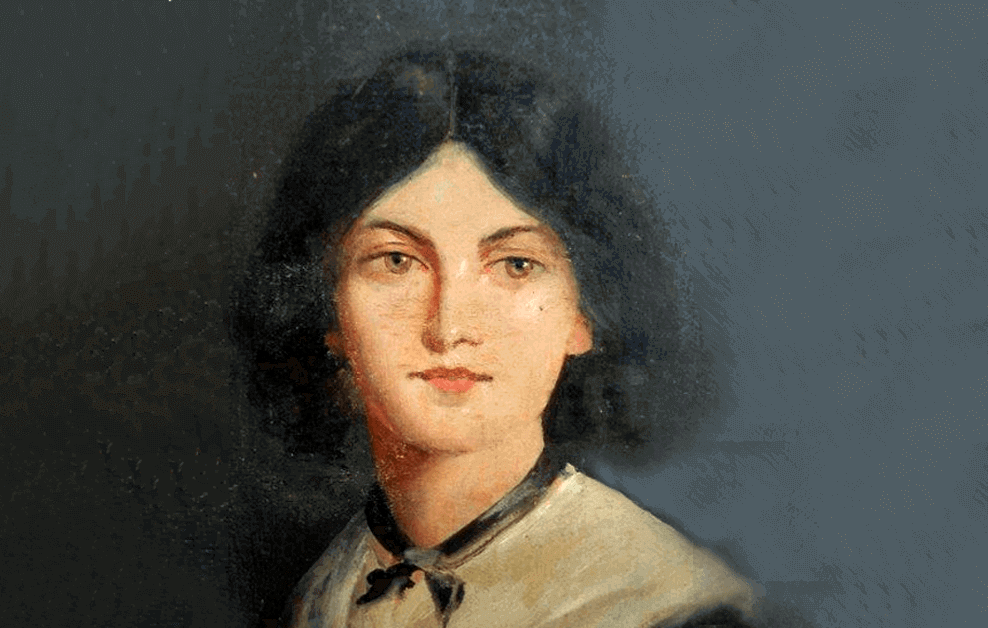Emily Brontë è una delle autrici più note e studiate del diciannovesimo secolo. È nota principalmente per il suo unico romanzo “Cime Tempestose“, ma la sua figura è stata (ed è tutt’oggi) una icona dell’età vittoriana.
Tuttavia, ciò che molti non sanno è che la sua vita e la sua opera sono state influenzate anche dall’astronomia, scienza che, nel periodo in cui visse, era in piena espansione.
Emily nacque nel 1818 a Haworth, nel West Yorkshire, in una famiglia composta da Patrick, il capofamiglia e curato anglicano, e dai suoi figli, tra cui Emily, Charlotte e Anne.
In quel periodo, di grandi cambiamenti sociali e scientifici, l’industrializzazione stava plasmando il nuovo mondo e, al contempo, il paesaggio britannico. Di pari passo, cresceva e si modellava anche la tecnologia e, con essa, la curiosità e l’interesse per il cielo notturno.
L’astronomia dell’epoca era caratterizzata da importanti scoperte e teorie. Si può dire che questa romantica e misteriosa scienza fosse parte della vita comune e della società durante gli anni in cui vissero le sorelle Brontë. Ed Emily mostrava un interesse particolare per l’universo, cosa che si rifletteva nelle sue opere letterarie.
In una delle sue poesie, intitolata “Stelle“, Emily esprime una visione panenteistica (la posizione teologica che sostiene che Dio sia immanente nell’universo, ma che allo stesso tempo lo trascenda) dell’universo, dove i pensieri trovano conforto e ispirazione nell’oscurità e nella notte, mentre la luce e il giorno erano visti come fonti di stress e minacce.
La dualità tra luce e oscurità può essere vista anche come una metafora della sua percezione del cosmo, dove risiedono infinita bellezza e mistero, ma anche isolamento e introspezione.
Emily era appassionata in generale di scienze naturali, e questa tensione spesso trovava spazio nelle conversazioni e negli scritti dell’epoca, di cui ancora oggi abbiamo traccia. Nonostante la sua breve vita, Emily Brontë ha lasciato un’impronta indelebile nella letteratura, e il suo interesse per l’astronomia aggiunge un ulteriore strato di complessità alla figura di questa straordinaria scrittrice e pensatrice. La sua capacità di intrecciare temi astronomici con la narrativa letteraria ci lascia una misura della sua profondità del suo intelletto e della sua continua ricerca di connessione con l’universo che ci circonda.
Di seguito il testo originale della poesia “Stelle”
Ah! why, because the dazzling sun
Restored our Earth to joy,
Have you departed, every one,
And left a desert sky?
All through the night, your glorious eyes
Were gazing down in mine,
And, with a full heart’s thankful sighs,
I blessed that watch divine.
I was at peace, and drank your beams
As they were life to me;
And revelled in my changeful dreams,
Like petrel on the sea.
Thought followed thought, star followed star,
Through boundless regions, on;
While one sweet influence, near and far,
Thrilled through, and proved us one!
Why did the morning dawn to break
So great, so pure, a spell;
And scorch with fire the tranquil cheek,
Where your cool radiance fell?
Blood-red, he rose, and, arrow-straight,
His fierce beams struck my brow;
The soul of nature sprang, elate,
But mine sank sad and low!
My lids closed down, yet through their veil
I saw him, blazing, still,
And steep in gold the misty dale,
And flash upon the hill.
I turned me to the pillow, then,
To call back night, and see
Your worlds of solemn light, again,
Throb with my heart, and me!
It would not do—the pillow glowed,
And glowed both roof and floor;
And birds sang loudly in the wood,
And fresh winds shook the door;
The curtains waved, the wakened flies
Were murmuring round my room,
Imprisoned there, till I should rise,
And give them leave to roam.
Oh, stars, and dreams, and gentle night;
Oh, night and stars, return!
And hide me from the hostile light
That does not warm, but burn;
That drains the blood of suffering men;
Drinks tears, instead of dew;
Let me sleep through his blinding reign,
And only wake with you!


